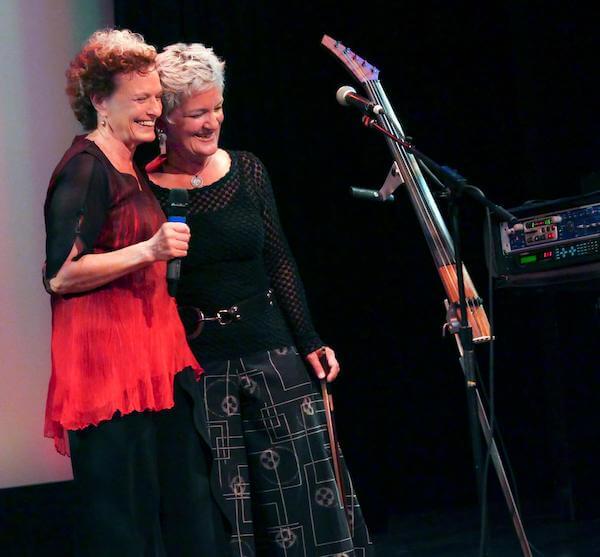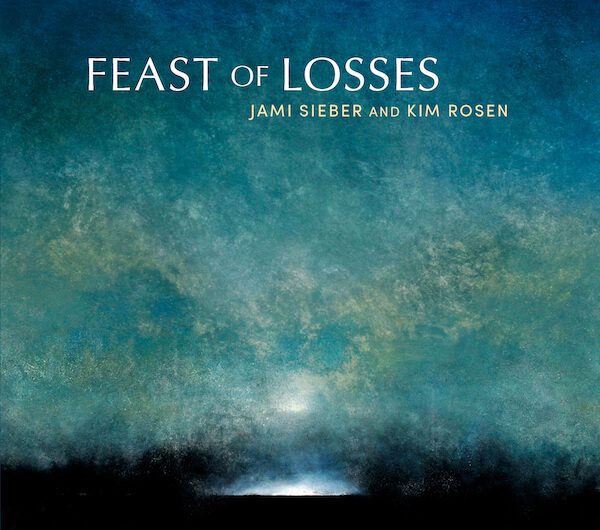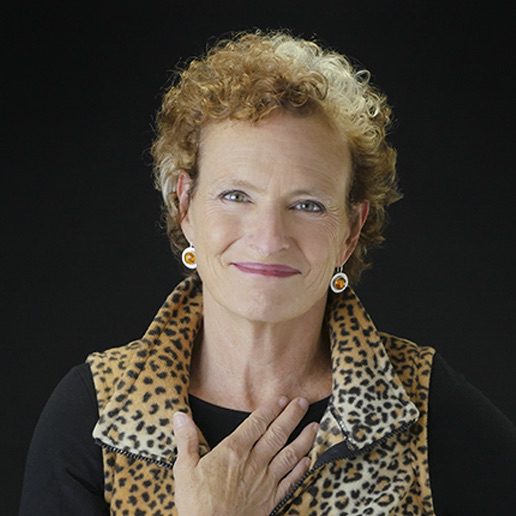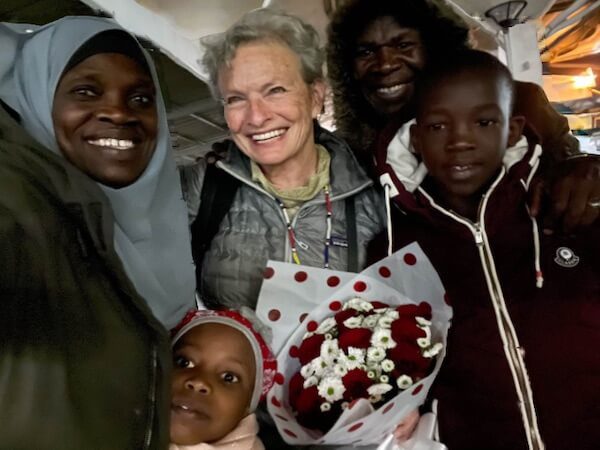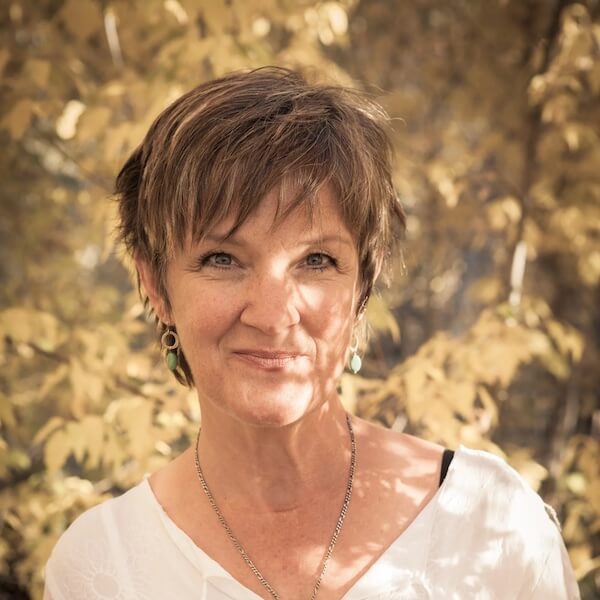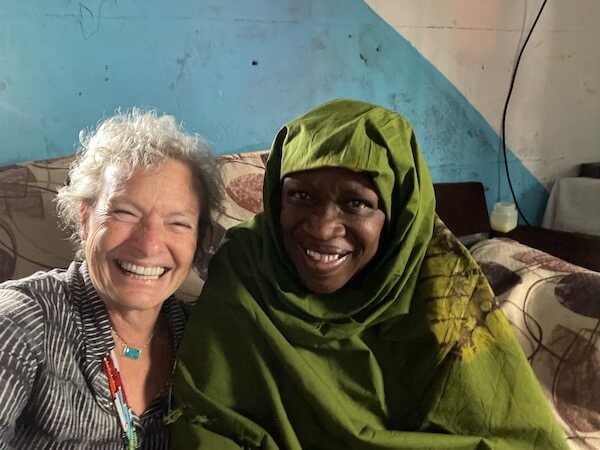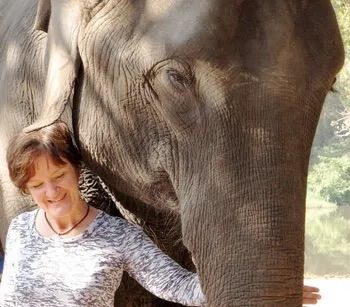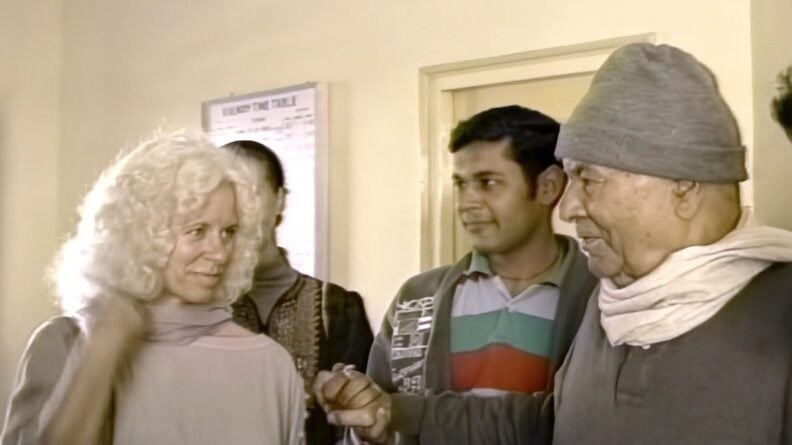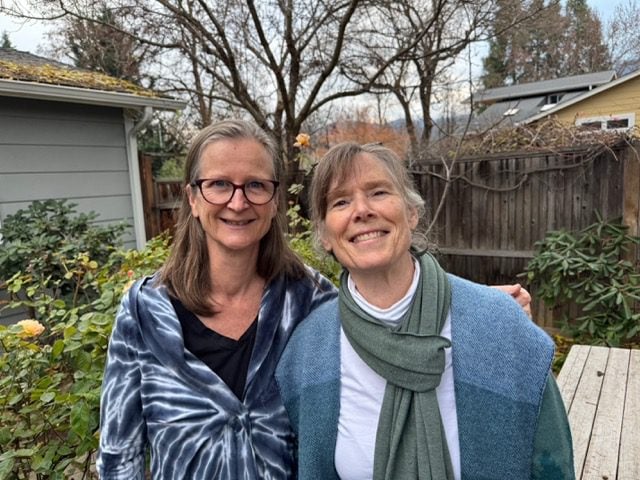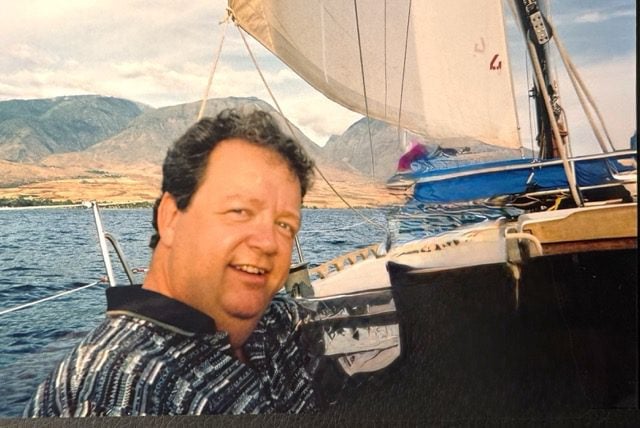Harriet: What is your process when creating the music around the poetry?
Jami: The creative process between Kim and me has always been an organic exploration of trusting the muse that arrives. I have never studied musical composition except by listening deeply to the music I love. What arises when I make space to compose, is always organic. It is like a melody or rhythm is flying by and somehow I pick up on it and it lands on my bow and strings.
We created Feast of Losses during four 5-day retreats on the Puget sound. We spent each day listening for the music and poems that arose, drawn by the themes of aging, death and letting go. Sometimes I would start to play and Kim would listen for which poems would show up. Sometimes Kim would begin by speaking a poem and the music would arise. By the end of three retreats, we had recorded over 40 hours of music and poetry. We spent the last retreat culling that down to two hours. Feast of Losses is the first of two albums born of that process.
Kim: I first heard Jami’s music in 2001. I’d just moved to California and I was house sitting. I turned on the CD player, without checking what the homeowners had been playing. Music unlike any I’d ever heard filled the space. Almost instantly the poems I’d been learning by heart for years started pouring out of me. I lay on the floor and spoke poem after poem. In the lush layers of cello, the poems revealed themselves in entirely new ways.
Miraculously I was able to track Jami down, and even more miraculously she agreed to do a performance with me. After just one rehearsal, we performed to a full house. The poems I’d spent years learning by heart clamored to be spoken, summoned by Jami’s music. The music unfurled from Jami’s bow, called forth by the poems. Without plan or practice, the poetry and music surged through us for four hours of pure improvisation.
For the last 21 years, this collaboration with Jami has been one of the most precious gifts of my life. Never am I happier than when surrendering to the river of creation that arises when we bring our arts together.
Harriet: What do you see as the transformative role of music and poetry for anyone engaged on a spiritual path?
Kim: As Gangaji has said, “We sit down in retreat so we can stand up in the world.” Poetry and music can be like a mini retreat. A poem or a musical composition has a structure, a time frame and an infusion of wisdom beyond the mind. When we merge spoken poems and music, there can be an added potency: the music makes it impossible for the brain to retain its linear hold on the words, allowing the poems to infuse us beyond the mind. The rhythms and sounds entrain the pulsations of our bodies and our biochemistry is literally changed: the throbbing of the cerebrospinal fluid shifts, causing a disarmament of the brain. In that vulnerability, the spoken wisdom of the poems and the unspoken wisdom of the music are delivered directly to the heart.
The Buddhists teach that there are three Heavenly Messengers: Aging, Sickness and Death. It is our prayer that Feast of Losses will offer an opportunity to meet them personally, and to discover the joy, aliveness, connection and gratitude that comes with welcoming them fully.
Jami: A spiritual path is a path to awakening. Poetry and music invite us to a world beyond the mind, beyond our patterns of thought and living. I have always loved these lines from a poem called “Escape” by D.H. Lawrence (that Kim shared with me years ago!):
When we get out of the glass bottles of our ego,
And we escape like squirrels turning in the cages of our personality
and get into the forests again,
we shall shiver with cold and fright
but things will happen to us
so that we don't know ourselves.
Cool, unlying life will rush in…
Poetry and music take me into that forest and help me WAKE UP.


